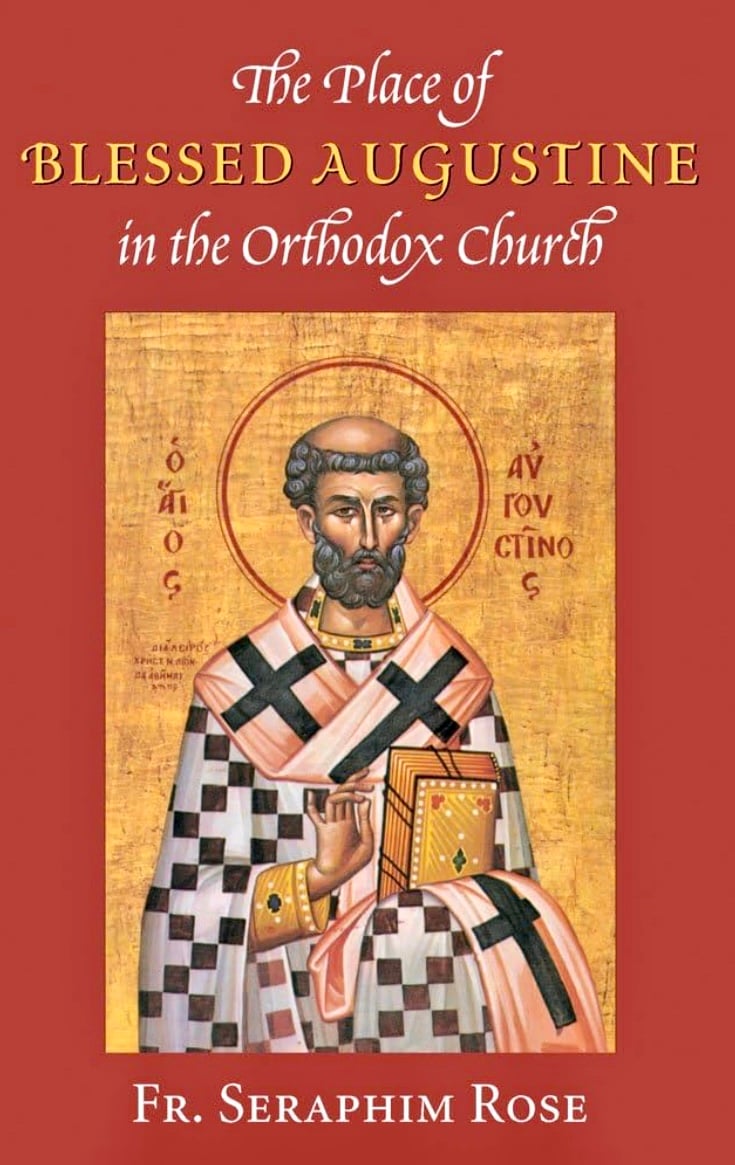
The Place of BLESSED AUGUSTINE in the Orthodox Church by Fr. Seraphim Rose
Editor: Father Herman Podmoshensky
First publication: Journal The Orthodox Word No. 79-80
Content:
FOREWORD
THE CONTROVERSY OVER GRACE AND FREE
THE DOCTRINE OF PREDESTINATION
OPINIONS IN FIFTH-CENTURY GAUL
SIXTH-CENTURY OPINION, EAST AND WEST
THE NINTH CENTURY: ST. PHOTIUS THE GREAT
LATER CENTURIES: ST. MARK OF EPHESUS
OPINION OF BLESSED AUGUSTINE IN MODERN TIMES
A NOTE ON THE CONTEMPORARY DETRACTORS OF BLESSED AUGUSTINE
BY GOD'S PROVIDENCE, in our own times Orthodox Christianity has been returning to the West which departed from it some 900 years ago. At first largely the unconscious work of emigrants from Orthodox lands, this movement has lately been recognized as a great opportunity for inhabitants of the West itself; for some decades this movement of Western converts to Orthodoxy has been increasing and it has now become quite a common phenomenon.
As Orthodoxy has thus gradually been sinking new roots in the West and becoming once again "indigenous" to these lands, among Western converts there has been a natural increase of awareness of the earlier Orthodox heritage of the West, and particularly of the Saints and Fathers of the early Christian centuries, many of whom are in no way inferior to their Eastern counterparts of the same centuries, and all of whom breathe the air and give off the fragrance of the true Christianity which was so tragically lost in the later West. The love and veneration of Archbishop John Maximovitch (+1966) for these Western Saints has especially served to awaken interest in them and facilitate their "reabsorption," as it were, into the mainstream of Orthodoxy.
With regard to most of the Saints of the West there have been no problems; as their lives and writings have been rediscovered, there has been only rejoicing among Orthodox Christians to find that the full spirit of Eastern Christianity was once so much a part of the West. Indeed, this rediscovery only bodes well for the continued development of a sound and balanced Orthodoxy in the West.
But with regard to a few Western Fathers there have been some "complications," owing especially to some of the dogmatic disputes in the early Christian centuries; the evaluations of these Fathers have differed in East and West, and for Orthodox Christians it is essential to know their significance in Orthodox eyes rather than in later Roman Catholic eyes.
The most eminent of these "controversial" Fathers in the West is, without doubt, Blessed Augustine, Bishop of Hippo in North Africa. Regarded in the West as one of the most important Fathers of the Church, and as the paramount "Doctor of Grace," he has always been regarded with some reserve in the East. In our own days, especially among Western converts to Orthodoxy, there have arisen two opposite and extreme views of him. One view, influenced by Roman Catholic opinions, sees rather more importance in him as a Father of the Church than the Orthodox Church has given him in the past; while the other view has tended to underestimate his Orthodox importance, some even going so far as to call him a "heretic." Both of these are Western views, not rooted in Orthodox tradition. The Orthodox view of him, on the other hand, held consistently down the centuries by the Holy Fathers of the East and (in the early centuries) of the West as well, goes to neither extreme, but is a balanced appraisal of him with due credit given both to his unquestioned greatness and to his faults.
In what follows we shall give a brief historical summary of the Orthodox evaluation of Blessed Augustine, emphasizing the attitude of various Holy Fathers toward him and going into details of his controversial teachings only where this is necessary to make clearer the Orthodox attitudes towards him. This historical investigation will also serve to bring out the Orthodox approach to such "controversial" figures in general. Where Orthodox dogmas are directly attacked, the Orthodox Church and her Fathers have always responded quickly and decisively, with correct dogmatic definitions and anathematizations of those who believe wrongly; but where the matter is one (even though on dogmatic subjects) of differing approaches, even of distortions or exaggerations or wellmeaning errors, the Church has always had a moderate and conciliating attitude. The Church's attitude toward heretics is one thing; her attitude toward Holy Fathers who happen to have erred in some point or other, is quite another. We shall see this in some detail in what follows.
